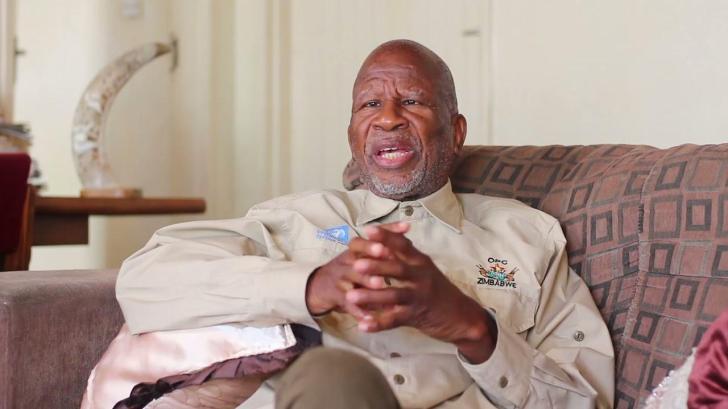News / National
Pathisa Nyathi burial today
06 Nov 2024 at 07:01hrs |
0 Views

Prominent historian, writer, and cultural advocate Pathisa Nyathi, who passed away last Saturday at the age of 73, will be laid to rest today at Bulawayo's prestigious Lady Stanley Cemetery. The cemetery, reserved for the city's luminaries, will be the final resting place of Nyathi, who made significant contributions to Zimbabwe's cultural and heritage landscape.
Nyathi died at a private hospital in Bulawayo, succumbing to a recurring illness that had seen him hospitalized several times in recent months. His death has left a profound impact on Zimbabwe's intellectual and cultural circles.
According to his son, Butholezwe Nyathi, a service will be held at the Amphitheatre in Bulawayo at 8 am before the burial at Lady Stanley Cemetery. The Nyathi family has invited well-wishers to join them in commemorating the life of a man who dedicated his work to preserving and promoting Zimbabwe's cultural heritage.
In recognition of his immense contributions to the country's cultural and educational development, President Emmerson Mnangagwa announced on Monday that Nyathi will receive a State-assisted burial. This gesture honors Nyathi's lifelong work in advancing Zimbabwe's arts, culture, and history.
Nyathi was a prolific writer, author, and publisher, who served as the former Secretary-General of the Zimbabwe Writers Union. He was a passionate proponent of Ndebele language and culture, believing that writing in the Ndebele language was essential for preserving and developing Zimbabwe's rich cultural heritage for future generations.
His academic background was as diverse as his contributions. Nyathi trained as a secondary school teacher at Gweru Teachers College, majoring in science from 1971, and obtained a Certificate in Education in 1973. He continued his education at the University of South Africa, where he earned a Bachelor of Arts degree in Geography and Development Administration in 1982, followed by a BA (Honours) in 1985.
In addition to his work as an educator and writer, Nyathi was actively involved in several national boards and committees. He served on the Zimbabwe International Book Fair (1989-1998), the Zimbabwe Book Development Council, the Mambo Press Editorial Advisory Board, and the Organisation of Rural Associations for Progress, among others.
Nyathi's legacy extends far beyond his publications, which were primarily in Ndebele, as he was an advocate for the continuous development of the language and its role in ensuring a rich cultural identity for future generations. His work will remain an important pillar in the cultural landscape of Zimbabwe.
Nyathi died at a private hospital in Bulawayo, succumbing to a recurring illness that had seen him hospitalized several times in recent months. His death has left a profound impact on Zimbabwe's intellectual and cultural circles.
According to his son, Butholezwe Nyathi, a service will be held at the Amphitheatre in Bulawayo at 8 am before the burial at Lady Stanley Cemetery. The Nyathi family has invited well-wishers to join them in commemorating the life of a man who dedicated his work to preserving and promoting Zimbabwe's cultural heritage.
In recognition of his immense contributions to the country's cultural and educational development, President Emmerson Mnangagwa announced on Monday that Nyathi will receive a State-assisted burial. This gesture honors Nyathi's lifelong work in advancing Zimbabwe's arts, culture, and history.
His academic background was as diverse as his contributions. Nyathi trained as a secondary school teacher at Gweru Teachers College, majoring in science from 1971, and obtained a Certificate in Education in 1973. He continued his education at the University of South Africa, where he earned a Bachelor of Arts degree in Geography and Development Administration in 1982, followed by a BA (Honours) in 1985.
In addition to his work as an educator and writer, Nyathi was actively involved in several national boards and committees. He served on the Zimbabwe International Book Fair (1989-1998), the Zimbabwe Book Development Council, the Mambo Press Editorial Advisory Board, and the Organisation of Rural Associations for Progress, among others.
Nyathi's legacy extends far beyond his publications, which were primarily in Ndebele, as he was an advocate for the continuous development of the language and its role in ensuring a rich cultural identity for future generations. His work will remain an important pillar in the cultural landscape of Zimbabwe.
Source - newsday
Join the discussion
Loading comments…


































